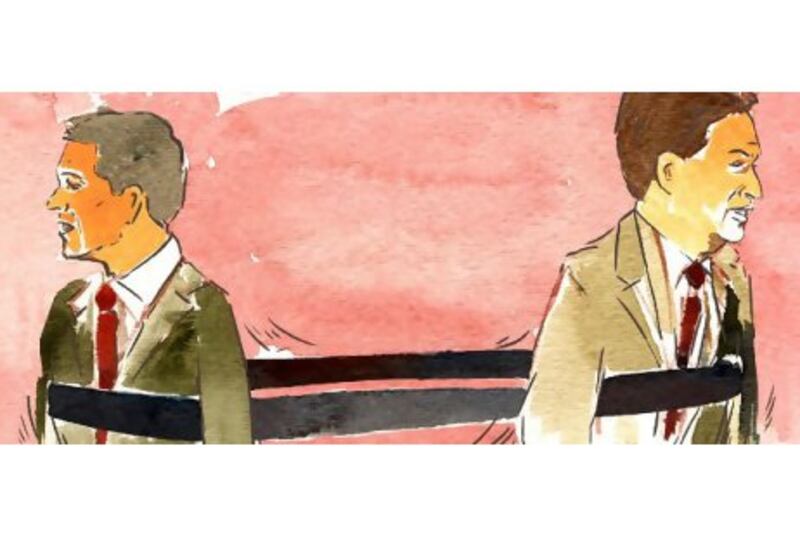It was the US novelist Booth Tarkington who wrote in 1918 that "politics is a dirty business for a gentleman". Nearly a century after first appearing in print, Tarkington's words remain remarkably astute.
Take, for example, the plight of Ed Miliband, the British politician.
Miliband succeeded Gordon Brown as leader of the Labour Party only late last year, following their party's poor showing in the 2010 general election. Brown, who had himself succeeded Tony Blair as prime minister in 2007, presided over a difficult three years in power when the UK economy first ground to a halt, then got stuck in reverse. He was eventually driven out of Downing Street by David Cameron's coalition government.
Miliband emerged as Brown's long-term successor at the party's annual conference last autumn, squeaking home in the fourth round of voting, in a process that had begun with five candidates for the leadership, and ended with a head-to-head run-off between Miliband and David, his more experienced elder brother.
History records that David was squeezed out by 49.35 per cent to 50.65 per cent. The record books also reveal that the former was more popular in that decisive vote with both the party faithful and fellow members of Parliament, while Ed carried the influential block vote of "affiliated members" or trade unions.
Ed Miliband talked in his moment of victory of taking Labour "on a journey back to power". He did this as his brother David slipped quietly out of the conference side door and announced his retirement from front-line politics.
But even as the pair adjusted to their new roles, the question remained whether Ed was really a more credible leader of the opposition than his brother might have been. While many also speculated whether David was genuinely happy to sit seething in self-imposed exile.
This debate gained ground once again this week with the serialisation by a British newspaper of selected extracts from Ed: the Milibands and the Making of a Labour Leader, a new book co-written by Mehdi Hasan and James Macintyre.
Billed as a biography that will help to unravel the mysteries of the "least understood [British] political leader of modern times", a man who apparently cites Robert F Kennedy as his political hero (who famously subjugated his own political ambitions to further his brother's career) the newspaper serialisation has so far preferred to stay closer to the still-simmering dispute between the brothers. In the process it has claimed that the pair now substantially mistrust each other, that their accounts of the days leading up to the deciding vote differ radically and that David may be considering a fresh leadership challenge.
He has, of course, rubbished such speculation, saying he has "moved on from the leadership election and so should everyone else ... I called for unity last [autumn] and I repeat that now ... the rest is soap opera of which I want no part."
In doing so, he may just have protested too much. By political standards, David Miliband is still young (he is 46 next month), far too young to spend the rest of his career watching from the sidelines as others shape Britain's future. Indeed, he may have reasonably calculated that all he need do for now is to sit and wait. In the meantime, his reputation will only grow from the sidelines.
On the other hand, his brother cannot afford to wait. Ed has no option but to invite David back into the fold, to put him clearly where he can see him, to burden him with the demands of office. Such a move would demonstrate that he is not only a master of his own destiny, but of his brother's, too. If politics is a "dirty business", then the younger Miliband needs to get his hands dirty. And he needs to do so sooner rather than later.






